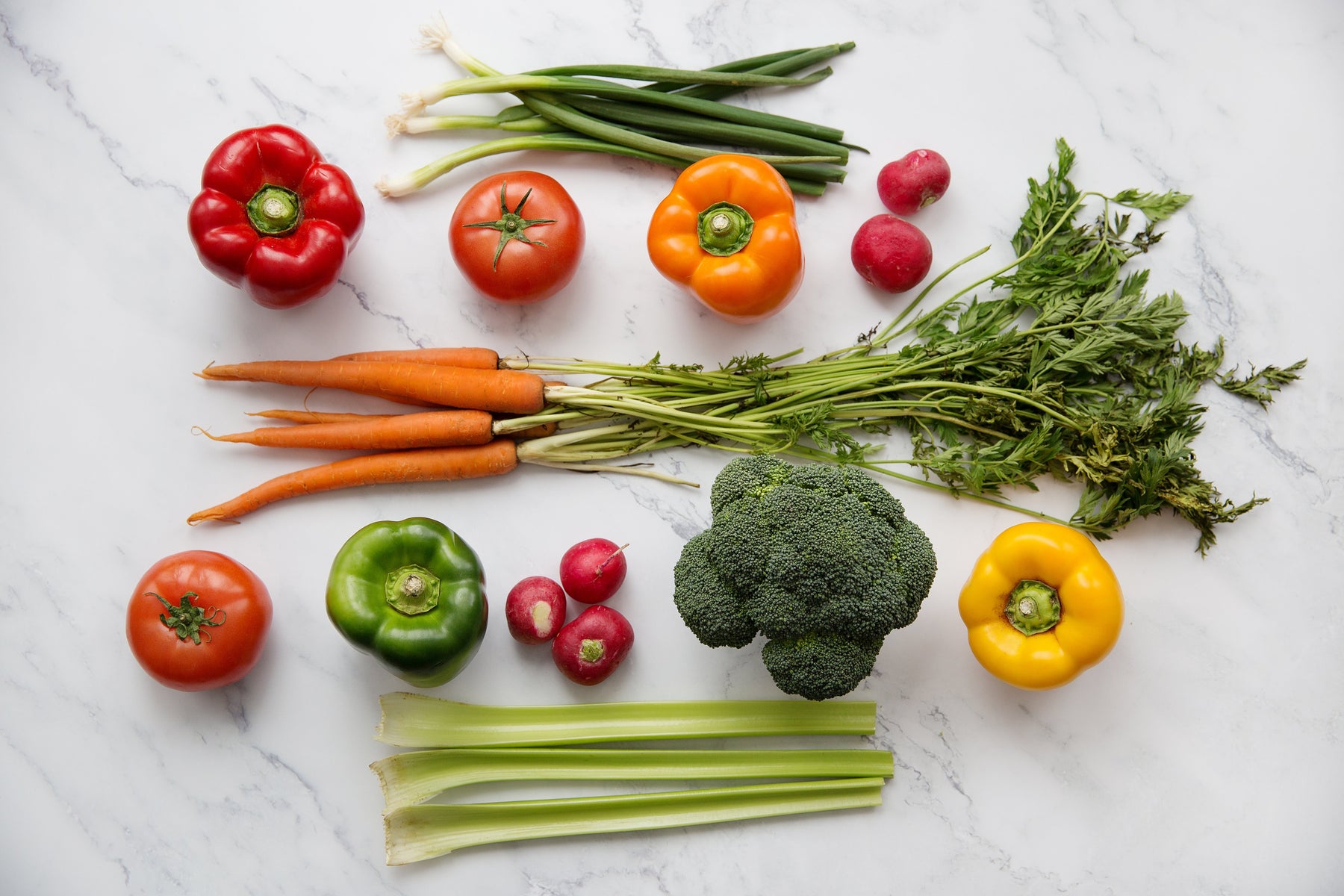
6 Supplements You May Need if You're on a Vegan Diet
Following a vegan diet, like all diets, has both its benefits and its disadvantages.
While it may reduce the burden on the planet, through the decrease of land or water needed, it may not be providing your body with all the nutrients it needs.
Here in this article, we're going to cover some of the supplements you may need (and why you need them) if you're on a vegan diet.
Iron

What is Iron?
Iron is an important mineral that is needed to make red blood cells (the ones that carry oxygen around your body). It also contributes to converting food to energy and the maintenance of a normal immune system and normal cognitive function.
How much do you need?
The NHS recommends that the amount of iron you need is (1):
- 8.7mg a day for men over 18
- 14.8mg a day for women aged 19 to 50
- 8.7mg a day for women over 50
Along with iron, it may be beneficial to take a vitamin C supplement as vitamin C increases iron absorption. Sources of vitamin C include oranges, kiwis, peppers and broccoli.
Vitamin B-12

What is Vitamin B-12?
Vitamin B12, like iron, is used for the production of red blood cells. It is also involved in the release of energy and to maintain a healthy nervous system.
It is an essential water-soluble vitamin which is absorbed through the lining of the gut with the help of a specialist protein called an intrinsic factor. The intrinsic factor is able to bind to receptors on the lining of the gut and bring Vitamin B12 through the wall of the gut and into the bloodstream.
Vitamin B-12 is stored in the liver and saved for future use if too much is consumed.
A lack of vitamin B-12 can cause folate deficiency anaemia as well as heart disease and infertility (2).
The reason many vegans struggle to achieve their recommended daily intake (RDI) of vitamin B-12 is because its main sources come from animal products, such as meat and dairy. Some fortified cereals such as Kellogg's All Bran contain vitamin B-12, however most vegans will have to take some sort of vitamin B supplement to reach their RDA.
How much do you need?
The NHS recommends that the amount of vitamin B12 a healthy adult needs is about 1.5 microgram a day. (3)
Zinc

What is Zinc?
Zinc is one of the most abundant minerals in the body. It is needed for cell growth and division as well as wound healing and the breakdown of carbohydrates. Zinc also has a role in the synthesis, storage and secretion of insulin.
Foods rich in zinc include legumes, tofu and walnuts as well as seeds.
A lack of zinc in the diet can cause a variety of symptoms such as weight loss, growth retardation, impaired immune function and delayed healing of wounds.
Vegans, in particular, need to be aware of how much zinc they are consuming as non meat sources often have a lower bioavailability than animal products. Techniques such as sprouting beans and legumes can increase bioavailability (4).
How much do you need?
The NHS recommends that the amount of zinc you need daily is (5):
- 9.5mg a day for men over 18
- 7.0mg a day for women over 18
Calcium

What is Calcium?
Calcium is the most abundant mineral in our body, even though we are unable to produce it ourselves.
Calcium is needed for muscular contraction and blood clotting. It is also a co-enzyme and has a vital role in the development, growth and maintenance of bones.
As most people know, the most common source of calcium is through dairy products. Dark green vegetables are excellent vegan-friendly sources of calcium. They also contain oxalic acid which helps with the body's ability to absorb calcium.
How much do you need?
The NHS recommends that the amount of calcium daily needed is (6):
- 700mg of calcium for adults aged 19 to 64
- 800mg for growing teenagers
Omega-3

What is Omega-3?
Omega-3s are a group of fatty acids made from ALA (alpha-linolenic acid), DHA (docosahexaenoic acid), and EPA (eicosapentaenoic acid).
They can lower elevated triglyceride levels and curb joint stiffness. DHA also seems to be important for neural and visual development in infants (7).
The body cannot make its own omega 3, so you have to get it from your diet.
Nuts, seeds and plant oils are an excellent way of incorporating omega 3 into your diet. Here at KeyVits we do a 500mg Vegan Omega 3 Algae Oil so you can abstain from fish products and still get your RDI of omega 3.
How much do you need?
There is not enough data to provide an accurate RDI of omega-3, however it is estimated that adults need about 0.25 grams of EPA plus DHA (8) and about 1.6g of ALA (9).
Vitamin D

What is Vitamin D?
Vitamin D's are a group of fat-soluble secosteroids (a type of hormone). They're responsible for increasing the uptake of minerals such as calcium, magnesium and phosphorus. It also facilitates the normal function of the immune system.
A lack of vitamin D can lead to bone deformities such as rickets or osteomalacia.
Even though we all wish we could spend our day lying in the sun, we need to consider taking in supplemental vitamin D through our diet. Vegan-friendly sources include mushrooms, fortified cereal and orange juice.
How much do you need?
The NHS recommends that "children from the age of 1 year and adults need 10 micrograms of vitamin D a day. This includes pregnant and breastfeeding women, and people at risk of vitamin D deficiency" (10).
An easy way to ensure you're getting the recommend amount is to take a vitamin D supplement such as our Vegan Vitamin D3 1,000iu (25ug).

